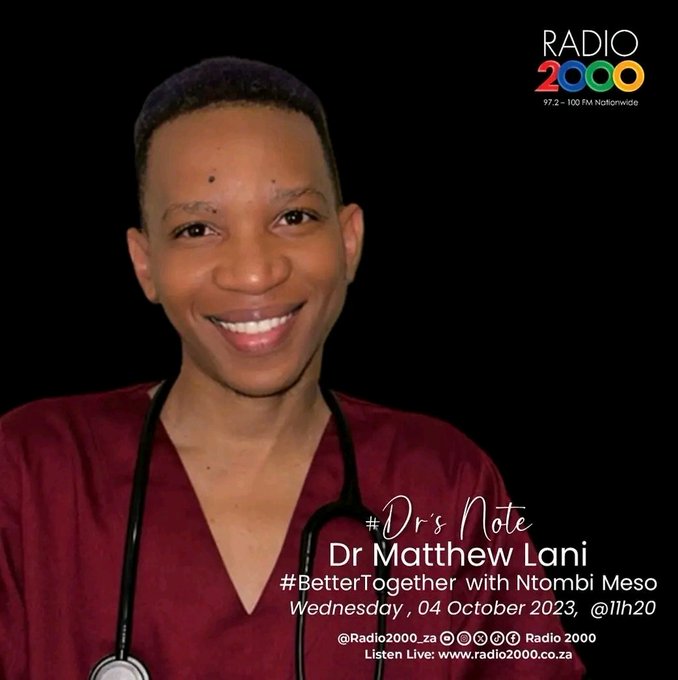Inbox icons, subject line sorcerers, CTA kings – the results are in. The 2025 You Mailed It Awards by Everlytic have crowned their champs, with Old Mutual Rewards and Machine_ taking…
Dr Matthew impact, blurred line between professionals and the unethical influencer

The tale of a fake doctor and social media influencer who convinced social media that he was a doctor only to be arrested at a hospital is not only a gripping story but a signal as to how far down society has shifted from certain standards.
Ethics are moral principles that govern a person’s behaviour and without a strong set of ethics, a business, or person can run off the rails with the law, encounter financial pitfalls and moral dilemmas, with little to no remorse.
It is these set ethics that ensure that people obey the rules and do the “right” thing.
By behaving according to a high ethical standard, people maintain acceptable behaviors, promote integrity among others, and gain trust from many key stakeholders.
How it went wrong?
A bogus Dr Matthew Lani was released from police custody after he was arrested at the Helen Joseph Hospital on Sunday night after he made his way into the building disguised in a hoodie, a surgical mask, and a stethoscope around his neck.
Lani who identifies as a doctor in a series of online videos curated misleading content under the pretense that he was a qualified doctor.
Lani rose in notoriety on TikTok for presenting himself as an employee of the Gauteng health department at the hospital with the claim that he was a Wits graduate.
The bogus doctor also made claims to be registered with the Health Professions Council of South Africa and that he had a high school diploma from Cambridge International College, institutions which both denied any links to him.
Lani has been let go as the court found that there was no case as he did not commit a crime.
The impact
While Lani maintains his innocence, he maintains a certain level of social media currency and influence which greatly translates into deeming him newsworthy. That’s where the danger is.
You have a bogus doctor who still has the platform and social media currency to influence.
This intern is more likely to blur the thin line between professionals and unethical social media influencers chasing a quick buck.
The difference is simple
Professionals have formal education, training, and certifications in their fields, which are more likely to provide a deeper understanding of their subject matter.
While influencers are growing in numbers, they may not have the same level of expertise or even qualification in the topics they discuss.
Influencers are a marketing team’s tool when reaching a broader audience. This is done to introduce a brand and garner trust around the brand. The line blurrs very quickly when the influencer roped in to generate sales leads is granted the platform to speak on more serious issues, without an in-depth understanding of the subject matter.
The massive danger
Professionals earn their income through their profession which is related to their expertise. Influencers primarily generate revenue through brand partnerships, sponsorships, and advertising on social media platforms.
Their motivation may be more focused on popularity and engagement rather than providing accurate and unbiased information.
Professionals are held to ethical and legal standards in their set industry and have a duty to care for their clients or customers, while influencers in most instances do not have the same level of accountability as they are not bound by professional standards or regulations.
The bigger reach
It’s given that influencers have a wider reach than professionals for several reasons, and there could be a danger there.
Influencer content is more easily digestible, which translates to it being more appealing to the audience.
The danger comes in the form of influencers lacking the necessary expertise or qualifications which could lead to the spread of inaccurate information.
A vast number of social media account holders are now providing advice all to prioritize engagement and trends over factual accuracy which leads to content that shifts narratives and harms society.
The impact of the untrained influencer could contribute massively in shaping certain narratives which could be detrimental to societies.
Influencers may focus on producing content for entertainment or shock value, than addressing critical issues that can contribute to a broader necessary discussion
It is imperative that online content consumers verify information especially information that has an impact on their well-being.
Relevance over responsibility
There is a growing call for regulations and ethical guidelines to ensure responsible content creation by influencers, but this is not moving fast enough as we are more likely to see certain bogus doctors maintain relevance without any recourse for disseminating misinformation all in the name of relevance.

Also read: Beat load shedding, get the best EcoFlow power backup deals this Black Friday

